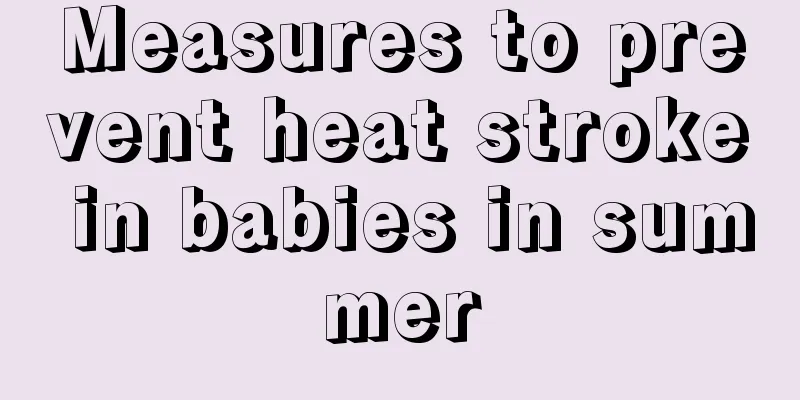What’s going on when a child has a bloated belly?

|
When children are young, they are often seen with bulging bellies. Sometimes, their bellies swell up very much after a meal. In most cases, a bulging belly is normal, but some children have abnormal conditions. So how do you tell whether a child’s bulging belly is normal or abnormal? Let me answer this question for you below. I hope my introduction can help you understand more. It is very common for babies to have a bulging belly. In most cases, it is normal. However, a small number of babies may have abnormal conditions, which are sometimes a sign of worsening disease. How to distinguish between normal and abnormal? Normal performance Generally speaking, a newborn baby has a big, round belly, and sometimes you can hear a gurgling sound, which is the sound of intestinal peristalsis and is normal. When the baby is not feeding, he should lie flat with his belly not higher than his chest. When the baby is feeding, his belly is slightly higher than his chest when he lies flat. If the baby does not have rapid or heavy breathing, foaming at the mouth, vomiting, etc., and has normal bowel movements, good mental response, sleep, weight gain, etc., and no other symptoms and signs, and the baby's belly feels soft when quiet, and the skin color of the belly is normal, then it may be physiological abdominal distension. Abnormal performance The baby's belly is always bloated whether he is feeding or not. The bowel movements are infrequent and the stomach does not feel soft when at rest. In addition to a bloated belly, the baby may also have other abnormal symptoms: foaming at the mouth, difficulty breathing, irritability, drowsiness, vomiting, etc. Why is this happening? Mechanical intestinal obstruction: The baby will have regular paroxysmal crying, accompanied by vomiting, and the crying will be temporarily relieved after vomiting. The vomitus often contains bile, blood or feces, with no or only a small amount of meconium or gas discharged. Intestinal patterns can be seen in the abdomen, and the rumbling sounds of the stomach increase and the tone becomes stronger. Ascites: Ascites caused by various reasons can also cause abdominal distension. In this case, the baby not only has a bloated belly, but also has symptoms such as difficulty breathing, abdominal shifting dullness, infection and poisoning. Pneumoperitoneum: It is caused by a large amount of gas entering the abdominal cavity due to perforation of the digestive tract. In addition to abdominal distension, the baby also has pale or purple complexion, difficulty breathing, tachycardia or bradycardia and other symptoms of rapidly deteriorating condition. Others: Some infectious diseases such as pneumonia, diarrhea, etc., and abdominal space-occupying lesions such as liver tumors and renal embryonal tumors often cause abdominal distension; some medications used by babies or breastfeeding mothers can also cause abdominal distension in babies. If any of the above situations occur, you should take your baby to the hospital for treatment to avoid delaying the condition. The above are the normal and abnormal manifestations of a child's stomach distension. Generally speaking, if a child has difficulty breathing, drowsiness, vomiting, or even severe tachycardia, the child should be taken to the hospital for examination in time. It is better to treat the cause of the stomach distension symptomatically. From the above we can see that a variety of diseases may cause stomach distension. |
<<: What should I do if my child coughs up yellow phlegm?
>>: What are the symptoms of encephalitis in a five-year-old child?
Recommend
How to treat spots on children's faces
Due to the differences in dietary structure betwe...
What to do if your child has a fever for no reason?
Every child will always encounter some health pro...
Northeast Kindergarten Recipes
As babies grow older, many of them have to leave ...
What is the normal crp value for children?
Many people do not know the meaning of crp. In fa...
Causes and prevention of allergic rhinitis in children
Because of not paying attention to hygiene, not r...
How to feed a newborn baby born by caesarean section?
Newborns born by caesarean section are very fragi...
How to treat a child with fever and cramps?
How to treat children with fever and convulsions?...
Height and weight of a boy at three and a half weeks
People's ideas and concepts have changed a lo...
Issues that should be paid attention to when a 7-year-old child loses teeth
From birth to old age, everyone will have a chang...
What should I do if my child is afraid of people and timid?
It is a very common phenomenon in life that child...
How to judge whether the baby's eyes are normal
Many trainee mothers generally have very little p...
What to do if a newborn baby has eczema on his neck
For many people, eczema is a common skin disease ...
Treatment of baby's knee synovitis
Do you know what synovitis is? This kind of synov...
Why are there obvious blood vessels in my baby’s eyelids?
The skin of very young babies is very thin and de...
Beware of low immunity in children in spring, let your children eat several foods in rotation
The temperature rises in spring and our body temp...









